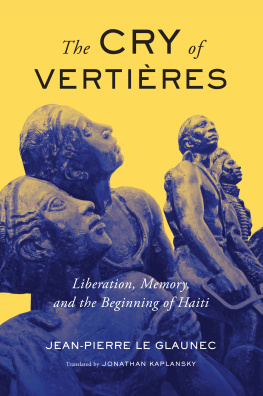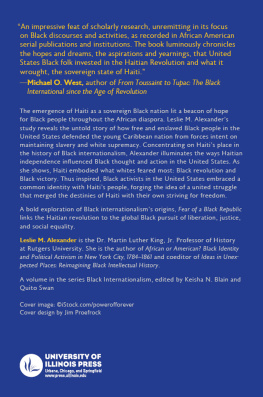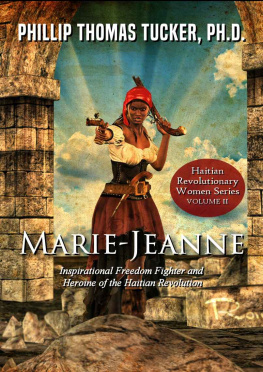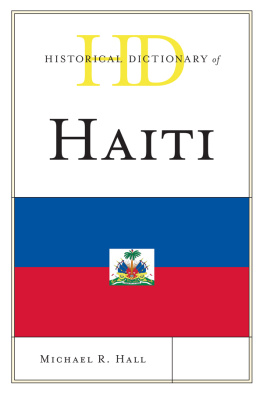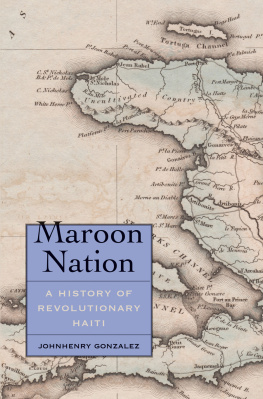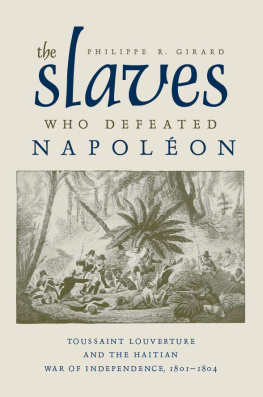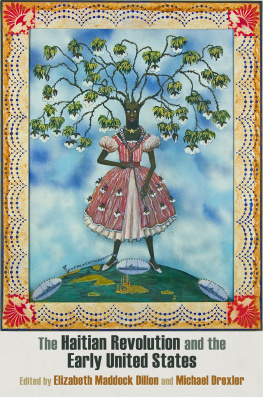
THE CRY OF VERTIRES
MCGILL-QUEENS FRENCH ATLANTIC WORLDS SERIES
SERIES EDITORS: NICHOLAS DEW AND JEAN-PIERRE LE GLAUNEC
The French Atlantic world has emerged as a rich and dynamic field of historical research. This series will showcase a new generation of scholarship exploring the worlds of the French Atlantic including West Africa, the greater Caribbean region, and the continental Americas from the sixteenth century to the mid-nineteenth century. Books in the series will explore how the societies of the French Atlantic were shaped and connected by trans-oceanic networks of colonialism, how local and indigenous cultures and environments shaped colonial projects, and how the diverse peoples of the French Atlantic understood and experienced their worlds. Especially welcome are histories from the perspectives of the enslaved and dispossessed. Comparative studies are encouraged and the series will accept manuscript submissions in English and in French. Original works of scholarship are preferred, though translations of landmark books in the field will be considered.
Le monde atlantique franais est devenu un domaine de recherche riche et dynamique au sein de la discipline historique. La prsente collection a pour vocation daccueillir une nouvelle gnration douvrages explorant les espaces de lAtlantique franais y compris lAfrique de lOuest, la grande rgion des Carabes et les Amriques continentales du dbut du XVIe sicle jusquau milieu du XIXe sicle. Les uvres qui y sont publies explorent de quelles manires les socits de lAtlantique franais sont faonnes et relies par les rseaux transocaniques issus du colonialisme, de quelle manire les cultures locales et leurs environnements influencent les projets coloniaux, et comment les divers peuples de lAtlantique franais comprennent et exprimentent leurs mondes. Les ouvrages donnant la parole aux esclaves ou aux acteurs traditionnellement domins sont particulirement bienvenus, tout comme les recherches compares. La collection est ouverte aux manuscrits rdigs en anglais ou en franais, de prfrence des monographies originales, ainsi quaux traductions de livres ayant marqu le domaine.
1 Architecture and Urbanism in the French Atlantic Empire
State, Church, and Society, 16041830
Gauvin Alexander Bailey
2 Flesh Reborn
The Saint Lawrence Valley Mission Settlements through the Seventeenth Century
Jean-Franzois Lozier
3 Power and Subsistence
The Political Economy of Grain in New France
Louise Dechne
4 Fruits of Perseverance
The French Presence in the Detroit River Region, 17011815
Guillaume Teasdale
5 The Cry of Vertires
Liberation, Memory, and the Beginning of Haiti
Jean-Pierre Le Glaunec
THE CRY OF VERTIRES
Liberation, Memory, and the Beginning of Haiti
Jean-Pierre Le Glaunec
Foreword by Lyonel Trouillot
Translated by Jonathan Kaplansky
McGill-Queens University Press
Montreal & Kingston London Chicago
McGill-Queens University Press 2020
Originally published in French by Lux diteur as Larme indigene. La dfaite de Napolon en Hati, by Jean-Pierre Le Glaunec. Lux diteur, Montral, 2014. www.luxediteur.com
ISBN 978-0-2280-0140-9 (cloth)
ISBN 978-0-2280-0278-9 (ePDF)
ISBN 978-0-2280-0279-6 (ePUB)
Legal deposit second quarter 2020
Bibliothque nationale du Qubec
Printed in Canada on acid-free paper that is 100% ancient forest free (100% post-consumer recycled), processed chlorine free
This book has been published with the help of a grant from the Canadian Federation for the Humanities and Social Sciences, through the Awards to Scholarly Publications Program, using funds provided by the Social Sciences and Humanities Research Council of Canada.

We acknowledge the support of the Canada Council for the Arts.
Nous remercions le Conseil des arts du Canada de son soutien.
Library and Archives Canada Cataloguing in Publication
Title: The cry of Vertires : liberation, memory, and the beginning of Haiti / Jean-Pierre Le Glaunec ; foreword by Lyonel Trouillot ; translated by Jonathan Kaplansky.
Other titles: Arme indigne. English
Names: Le Glaunec, Jean-Pierre, author. | Trouillot, Lyonel, writer of foreword. | Kaplansky, Jonathan, 1960- translator.
Series: McGill-Queens French Atlantic worlds series ; 5.
Description: Series statement: McGill-Queens French Atlantic worlds series ; 5 | Translation of: Larme indigne: la dfaite de Napolon en Hati. | Includes bibliographical references and index.
Identifiers: Canadiana (print) 20200169408 | Canadiana (ebook) 20200169440 | ISBN 9780228001409 (hardcover) | ISBN 9780228002789 (PDF) | ISBN 9780228002796 (ePUB)
Subjects: LCSH: Vertires, Battle of, Haiti, 1803. | LCSH: HaitiHistoryRevolution, 1791-1804.
Classification: LCC F1923 .L4413 2020 | DDC 972.94/03dc23
This book was designed and typeset by Peggy & Co. Design in 11/14 Sabon.
To Fred and Stella
and
To my grenadiers, Hannah and Augustin
As I wait to introduce them to Haiti,
I entrust them with the words
of Capois, the hero of this book:
En avant! En avant!
Contents
by Lyonel Trouillot
Figures
.
.
.
.
.
.
.
.
.
.
.
.
.
.
.
.
.
.
Foreword
The absence of the word Vertires from dictionaries of proper names acknowledged as prestigious and authoritative in the West, even in the world, is not insignificant. Vertires embodies so much heroism and symbolism, an end and a beginning so that the place and the battle lend themselves as potential reference points for historical re-enactments and reconstruction. Yet never before has a historical event been so carefully hidden by its protagonists and later by historians, who took it upon themselves to envision and relate the past from the point of view of those who, when faced with the power of these events, chose only to silence them.
Michel-Rolph Trouillot (how not to think of him as I read this book and write this preface?) reminds us in his Silencing the Past that it is not enough for the event to have taken place for it to be remembered: people in power must also recognize and support it. Powers accept what can be recovered. Vertires, the final battle that sanctioned the outcome of an anti-colonial, anti-slavery, anti-racist revolution, led by two of the most radical revolutionaries of the indigenous army, Jean-Jacques Dessalines and Franois Capois, known as Capois-la-Mort, is the military grave of an inhuman regime with racist intent. That is also why for history written from a place of colonial arrogance, Vertires does not exist.
The silence surrounding Vertires attempts to do away with not only this actual achievement of freedom and human dignity by forces deemed improbable but also, and primarily, the violence and inhumanity of the colonial system and the society that envisioned and produced this system: forgetting it is an attempt to deny it. For to speak of Vertires is to speak of revolutionary violence as an answer to colonial violence. To quote Capois saying we are men is also to quote those who proposed killing all black males of the colony except for young children. Vertires is the end of a tunnel of horror, the final confrontation between colonial racism and the actual realization of the principle of race equality and universal freedom.
Next page
